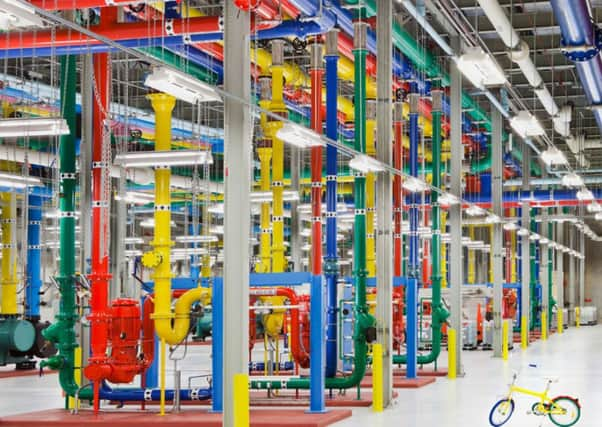How smartphones can help to shape the cities of the future


Using detailed information on how people live their lives would result in cheaper testing of designs before construction begins and greater consultation with potential users – speeding up the process, saving time and money and resulting in better and more affordable design, it said.
The report, Designing with data: Shaping our future cities, by the Royal Institute of British Architects (RIBA) and engineering firm Arup, calls on the Government to make it a requirement for the data that is already collected during the planning and design process to be easily accessible for designers, planners and architects.
Advertisement
Hide AdAdvertisement
Hide AdStephen Hodder, RIBA president, said: “Lots of the data is available and already being collected, so why aren’t more architects taking advantage?
“We need the Government to ensure this data is harnessed by local authorities and made available for architects, developers, residents’ groups, charities, and business so they can make the best use of it.”
The report recommends that government “should model and explore the potential benefits of a digital planning process”.
“Government should scope how it can standardise the digitisation of all information submitted for planning, and of standardising design data collection across local authorities.
Advertisement
Hide AdAdvertisement
Hide Ad“This public data should be open to unleash economic growth; and local authorities should be encouraged to use open data to inform local planning strategies,” it said.
The report also recommends that a joint government, industry and academic working group should be established to “oversee the digitisation of planning”.
It added that there should also be better co-ordination between government departments to prevent data duplication and “help identify gaps in data provision to enable the government to develop a more holistic framework for data capture and analysis”.
Mr Hodder said: “This report must signal an end to clunky planning application websites with their overly-long reference numbers and multitude of pointless scanned documents, data collection needs to be standardised across the country, easily accessible and open to everyone.
Advertisement
Hide AdAdvertisement
Hide Ad“The RIBA is looking to a future where data will enable architects to unleash their creativity in ways that are currently too expensive or time-consuming to create the best buildings possible.”
The report said that data from mobile phones, which track our movements through the city, parking sensors, congestion charge zones and Oyster cards, which show how and when people are moving around the city, and social media, which records our thoughts and feelings about place and experiences, created the opportunity for designers and planners to make places that are better attuned to the people who use them by understanding their needs.
Arup’s Léan Doody, the author of the report, said: “We have all been in situations when we are frustrated by our environment; when we are unable to park, roads are over-crowded or pavements too narrow. Analysis of open data provides the possibility of avoiding this, and we are already seeing some exciting government initiatives in the UK around this, including the launch of the Smart Cities Forum, the Open Data Institute and the Future Cities Catapult.
“This report illustrates the positive practical and economic benefits of using open data, and in doing so demonstrates the necessity for its wider use.”
Advertisement
Hide AdAdvertisement
Hide AdHowever, Richard Frudd, associate director at Leeds-based Indigo Planning, said: “Standardising data collection and presentation is sensible, and would almost certainly assist with making some areas of the planning process more effective. The big question would be where does the money come from to implement such a system?”
Using public data also raises a number of privacy and security issues.
UK telecoms operators, for example, are legally required to store data for one year, but it is then illegal for them to keep it for more than two years.
The report said: “We need to identify ethical standards for how public data is used.
Advertisement
Hide AdAdvertisement
Hide Ad“The public need to be comfortable with how their data is used and should have the right to opt out if they wish.”
Smart, forward thinking
The Government is pushing forward a number of initiatives connected to big data and smart cities.
The Department for Business, Innovation and Skills (BIS) is setting up a Smart Cities Forum for policymakers, cities, businesses and researchers to develop and coordinate policy more effectively.
BIS has also commissioned the British Standards Institute to identify where standards could help address barriers to implementing smart city concepts including data sharing between agencies.
Meanwhile, the Cabinet Office is looking at ways to encourage private data.
The Technology Strategy Board has sponsored the establishment of the Open Data Institute and the Future Cities Catapult.